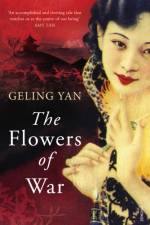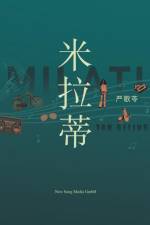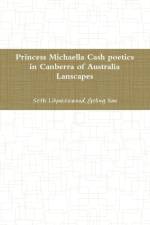av Geling Yan
399,-
¿¿¿¿¿¿¿¿¿¿¿¿¿¿¿¿¿¿¿¿¿¿¿¿¿¿¿¿¿¿¿¿¿¿¿¿¿¿¿¿¿¿¿¿¿¿¿--¿¿¿¿¿¿¿¿¿¿¿¿¿¿¿¿¿¿¿¿¿¿¿¿¿¿¿¿¿¿¿¿¿¿¿¿¿¿¿¿¿¿¿¿¿¿¿¿¿¿¿¿¿¿¿¿¿¿¿¿¿¿.....¿¿¿¿¿¿¿¿¿¿¿¿¿¿¿¿¿¿¿¿¿¿¿¿¿¿¿¿¿¿¿¿¿¿¿¿¿¿¿¿¿¿¿¿¿¿¿¿¿¿¿¿¿¿¿¿¿¿¿¿¿¿¿¿¿¿¿¿¿¿¿¿¿¿¿¿......¿¿¿¿¿¿¿¿¿¿¿¿¿¿¿¿¿¿¿¿¿¿¿¿¿¿¿¿¿¿¿¿¿¿¿¿¿¿¿¿¿¿¿¿¿¿¿¿¿¿¿¿¿¿¿¿¿¿¿¿¿¿¿¿¿¿¿¿¿¿¿¿¿¿¿¿¿¿¿¿¿¿¿¿¿¿¿¿¿¿¿¿¿¿¿¿¿¿¿¿¿¿¿¿¿¿¿¿¿¿¿¿¿¿¿¿¿¿¿¿¿¿¿¿¿¿¿¿¿¿¿¿¿¿¿¿¿¿¿¿¿¿¿¿¿¿¿¿¿¿¿¿¿¿¿¿¿¿¿¿¿¿¿¿¿¿ ¿¿¿¿¿1989¿¿¿¿¿¿¿¿¿¿¿¿¿¿¿¿¿¿¿¿¿¿¿¿¿¿¿¿¿¿¿¿¿¿¿¿¿¿¿¿¿¿¿¿¿¿¿¿¿¿¿¿¿¿¿¿¿¿¿¿¿¿¿¿¿¿¿¿¿¿¿¿¿¿¿¿¿¿¿¿¿¿¿¿¿¿¿¿¿¿¿¿¿¿¿¿¿¿¿¿¿¿¿¿¿Awakening¿¿¿¿¿¿¿¿¿¿1969¿¿¿¿¿¿¿¿¿¿¿¿¿¿¿¿¿"Sleep disease" ¿¿¿¿¿¿¿¿¿¿¿¿¿¿¿¿¿¿¿¿¿¿¿¿¿¿¿¿¿¿¿¿¿¿¿¿¿¿¿¿¿¿¿¿¿¿¿¿¿¿¿¿¿¿¿1989¿¿¿¿¿¿¿¿¿¿¿¿¿¿¿¿¿"¿¿¿¿"¿ In the early 1980s in China, a twenty-year-old young woman named Milati leaves her career as a dancer in an army performance troupe and undergoes the most crucial transition in her life: from a passive performer of art, she becomes a young writer who thinks and creates independently. The early eighties bring a major reshuffle of ideas: love, sex, freedom, democracy... It seems that people's perceptions and patterns of behavior have changed overnight in a subversive way; that which was once impossible becomes possible, and the possibilities seem endless: extramarital love, one-night stands, disco, black-light parties, underground publishing, painting with nude models, and on and on.The story revolves around Milati's personal experiences and the awakening and disillusionment of two generations of Chinese artists, writers and intellectuals. The 1980s were a time when ordinary Chinese people left the Maoist era behind and experienced a universal values such as independence and freedom. For the first time, Milati, her friends, and her father's generation stood on the same horizon of literature and art as the rest of the world, seeing the infinite possibilities of free thought and expression, of free creation. They are excited and exhilarated, believing that those infinite possibilities would continue to unfold before them.But everything comes to an abrupt end in the early summer of 1989. Milati and her father, Mi Xiao, go abroad, one after the other. Later, Mi Xiao's best friend, the dramatist Wu Ke, joins them abroad. This small bohemian group begins to drift freely; free to suffer poverty, but also free to create. They realize that for China, the 1980s were like the phenomenon recorded in Dr. Oliver Sacks' famous book Awakenings, which chronicles how the drug dopamine revived a group of catatonic patients, "asleep" for decades, but when complications arose, subsequently returned to their "sleep." This book follows a group of Chinese intellectuals who, after a great awakening during the 1980s, return to their slumber in 1989.




